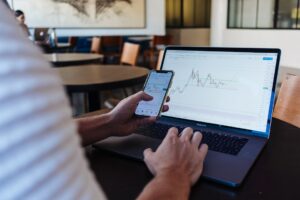The Role of Psychology in Successful Forex Trading
Forex trading is not just about analyzing charts, understanding market trends, and making well-informed trading decisions. It also involves a significant psychological aspect that can greatly impact a trader’s success in the forex market. In fact, many experts believe that psychology plays a crucial role in determining whether a trader will be successful or not. In this article, we will explore the role of psychology in successful forex trading and discuss some strategies to overcome psychological challenges.
1. Emotions and Trading
One of the main psychological challenges in forex trading is managing emotions. Greed, fear, and impatience are common emotions that can cloud a trader’s judgment and lead to poor decision-making. For example, a trader who becomes overly greedy may hold onto a winning trade for too long, hoping for even higher profits, only to see the market reverse and wipe out all gains. On the other hand, fear can cause a trader to exit a trade prematurely, missing out on potential profits.
To overcome these emotional challenges, it is essential for traders to develop emotional discipline. This can be achieved through various techniques, such as setting realistic profit targets and stop-loss levels before entering a trade. By having clear objectives, traders can avoid becoming overly greedy or fearful and stick to their trading plan.
2. Patience and Discipline
Another crucial psychological aspect of successful forex trading is patience and discipline. Forex markets can be volatile, and it is not uncommon for traders to experience periods of losses. During these times, it is essential to remain patient and not deviate from the trading plan. Impulsive decisions based on short-term market fluctuations can lead to significant losses.
Developing discipline requires a trader to stick to their trading strategy, even during losing streaks. It is important to remember that losses are a part of trading, and successful traders understand that they cannot win every trade. By staying disciplined and adhering to their trading plan, traders can increase their chances of long-term success.
3. Cognitive Biases
Cognitive biases are another psychological aspect that can impact forex trading. These biases are unconscious patterns of thinking that can lead to irrational decision-making. For example, confirmation bias refers to the tendency to seek information that confirms existing beliefs while ignoring contradictory evidence. This bias can prevent traders from objectively assessing the market and lead to biased trading decisions.
To overcome cognitive biases, traders need to be aware of their existence and actively work to counteract them. This can be done by seeking alternative viewpoints and considering opposing arguments before making a trading decision. Additionally, keeping a trading journal can help traders identify patterns of biased thinking and make adjustments to their decision-making process.
4. Mindset and Self-Reflection
Lastly, developing the right mindset is crucial for successful forex trading. A trader’s mindset can greatly impact their ability to handle losses, manage risk, and stay disciplined. A growth mindset, which focuses on continuous learning and improvement, is essential for adapting to changing market conditions and staying ahead of the competition.
Self-reflection is an important practice for developing the right mindset. Traders should regularly review their trading performance, identify areas for improvement, and make necessary adjustments. By actively seeking feedback and learning from mistakes, traders can continuously evolve and enhance their trading skills.
In conclusion, the role of psychology in successful forex trading cannot be overstated. Managing emotions, maintaining discipline, overcoming cognitive biases, and developing the right mindset are all crucial aspects of achieving long-term success in the forex market. By understanding and addressing these psychological challenges, traders can enhance their trading performance and increase their chances of profitability.






